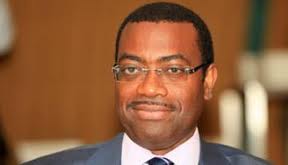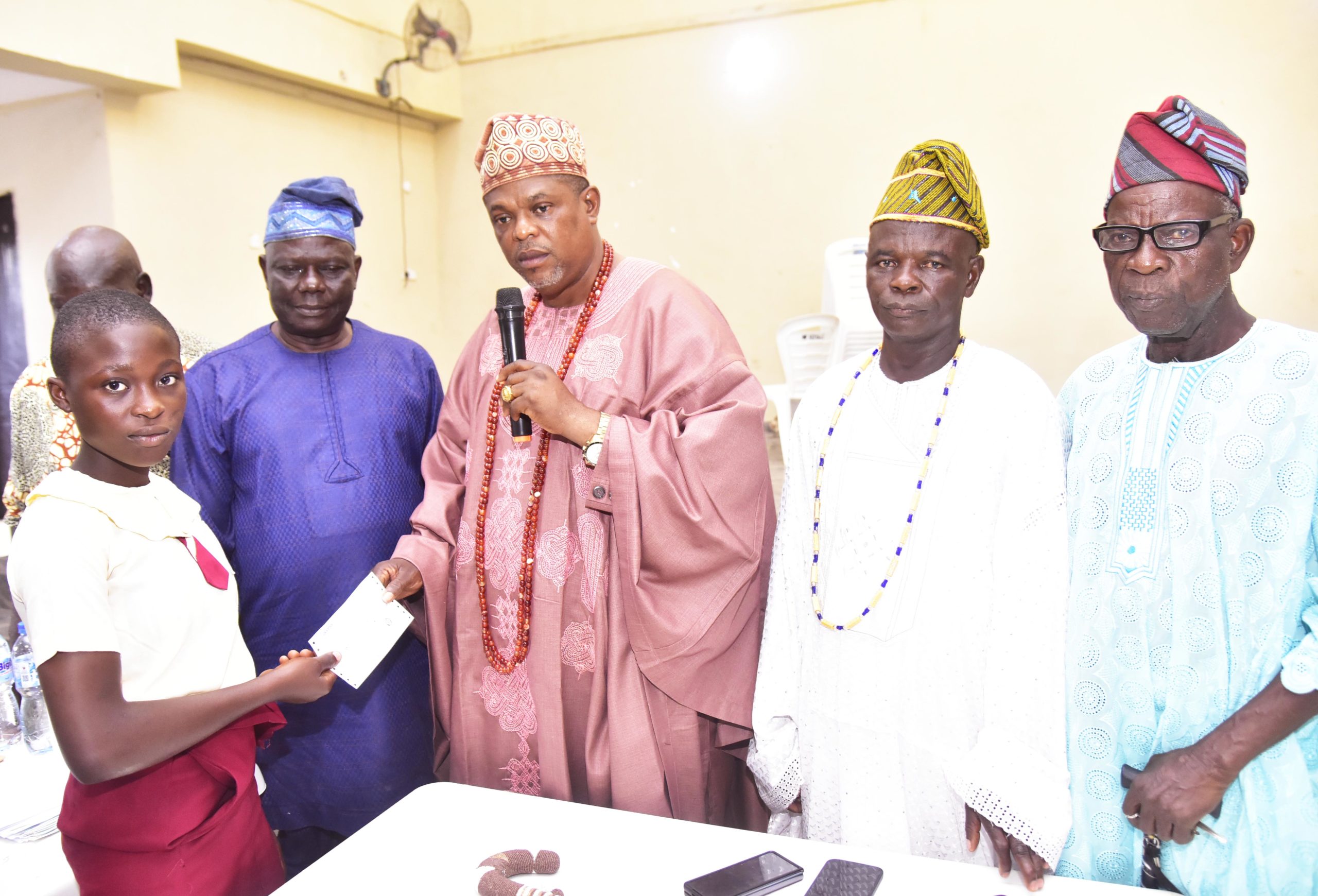Finance
Rice attracts N256bn investments in Nigeria–Government
The rice sector in Nigeria has attracted N256bn ($1.6bn) worth of investments in the last three years, the Federal Government has said.
The Minister of Agriculture and Rural Development, Dr. Akinwumi Adesina, disclosed during the signing of a Memorandum of Understanding with the Bank of Industry to build rice and cassava mills across the country.
He said, “Within a three-year period, we have been able to attract $1.6bn of investment into the rice sector. The largest one being Aliko Dangote that has put up in over N165bn, which is $1bn into commercial rice production and also commercial rice milling.
“I have no doubt that within three years, Nigeria will be exporting rice just like Thailand and India, and that is exactly the way it should be. However, we notice that as we have been producing a lot of rice, we don’t have enough mills to process the rice.”
Adesina said the country lacked integrated rice mills to process the locally produced rice to global standards.
He said it was important for Nigeria to close the milling gap, and to achieve this, the country had to build integrated rice mills.
He noted that the MoU was to facilitate the building of 10 rice mills and six cassava processing mills.
The minister said, “The 10 integrated rice mills will each have the capacity of 36,000 metric tonnes, which means they all will be a total of 360,000 metric tonnes. So, this is a huge investment. The rice mills are going to be located in Kebbi, Zamara, Kaduna, Kano, Benue, Kogi, Bayelsa, Bauchi, Ogun and Anambra states.
“Government has no part in this venture. The role of the government is to facilitate access to finance for private sector investors to invest in these mills and run them as private sector-driven operation.”
The Managing Director/Chief Executive, BoI, Mr. Rasheed Olaoluwa, said, “We are now at the critical stage where there is a need for effective processing of the agricultural produce. The MoU will address the modalities to ensure that these 16 companies materialise in the next few months.
“It is hoped that by the time the companies are operational, the amount of rice being imported will be significantly reduced if not completely eliminated.”
He stated that the MoU would allow for the release of loans to investors and noted that the credit would come with an interest of five per cent.
Olaoluwa said the repayment period would be 10 years with three years moratorium.
In another development, the Federal Government signed another MoU with Nigeria Breweries Plc for the development and commercialisation of hybrid sorghum as part of its sustainability programme.
The government said that despite Nigeria being the largest producer of food sorghum in the world, the country had yet to reap the benefits of using it for the production of high energy food as it was done in other countries.
Adesina said his ministry reached out to 96,000 sorghum farmers in 2013 with improved inputs, seeds and fertilizers in order to enhance the development of the value chain.
PUNCH-
Business
Nigeria pays US$4.9 billion on petrol subsidy in 2024- NNPCL
It was however noted by Biztellers.com.ng, that although subsidy is back in effect, the main reason for that is the increasingly weak state of the Naira and the country’s extreme dependence on products importation. Also unlike the previous subsidy era, where several oil marketers were getting free subsidy refunds for unverified product importation, this subsidy era is witnessing only one importer, the NNPCL, which in effect is the sole receiver of government subsidies.
Yemie ADEOYE
INSPITE of the official position of the Nigerian government that the controversial petrol subsidy is gone for good as announced by the President on assumption of office, the state owned Nigerian National Petroleum Corporation Limited, NNPCL has disclosed that petrol subsidy is still fully operational in Nigeria, although, under a different identity.
Umar Ajiya, Chief Financial Officer at the NNPCL, disclosed that it cost the company a staggering N7.8 trillion (US$4.9) to cover this price gap in the first seven months of 2024.
Rather than simply referring to these claims as subsidies, he stated that the company is merely managing the price difference in petrol imports on behalf of the federation, stressing that this should not be misconstrued as a return to subsidy payments.
![]() This revelation has reignited discussions on whether the NNPC is indirectly offering subsidies, a concept typically defined as selling a product below its cost price.
This revelation has reignited discussions on whether the NNPC is indirectly offering subsidies, a concept typically defined as selling a product below its cost price.
Documents reviewed by Biztellers.com.ng showed that the term “subsidy” was used extensively in official correspondence between the NNPCL and the presidency, particularly in reference to the “shortfall.”
Recall that President Bola Tinubu reportedly approved NNPC’s request to utilize the 2023 final dividends due to the federation to offset these costs.
However, during a media briefing on Monday about the company’s 2023 audited financial statements, Ajiya refuted claims that the NNPC is involved in any subsidy scheme.
Ajiya further disclosed that the Nigerian government owes the NNPC N7.8 trillion ($4.9 billion) in subsidy-related debts for the period from January to July 2024.
In furtherance of his clarification to the News Agency of Nigeria (NAN), Ajiya insisted that no subsidy payments have been made to any marketer in the last nine years, citing the NNPC’s role as the sole importer of petrol under supply contracts.
He said, “In the last eight to nine years, NNPC Ltd. has not paid anyone a dime as a subsidy; no kobo has been disbursed by NNPC Ltd. in the name of subsidy. No marketer has received any payment from us for subsidy.”
“What has been happening is that we have been importing PMS, which has been landing at a specific cost price, and the government tells us to sell it at half price. So the difference between the landing price and that half price is a shortfall.
“And the deal is between the Federation and NNPC Ltd., to reconcile, sometimes they give us money, so there is no money exchanging hands with any marketer in the name of subsidy.”
Ajiya remained silent on how much of the $4.9 billion could have been remitted to the federation account if the NNPC had not been covering the “shortfall.”
It was however noted by Biztellers.com.ng, that although subsidy is back in effect, the main reason for that is the increasingly weak state of the Naira and the country’s extreme dependence on products importation. Also unlike the previous subsidy era, where several oil marketers were getting free subsidy refunds for unverified product importation, this subsidy era is witnessing only one importer, the NNPCL, which in effect is the sole receiver of government subsidies.
Banking
CBN Denies Currency Devaluation

The Central Bank of Nigeria (CBN) has refuted claims of devaluing the.
Earlier reports suggested that the CBN had devalued the Naira, lowering its exchange rate from N631 to the dollar, compared to the previous day’s rate of N461.60 at the Importers and Exporters (I&E) window.
However, the Central Bank of Nigeria (CBN) released a statement on Thursday through its Acting Head of Corporate Communications, Dr. Isa Abdulmumin, categorizing the report as false information.
In the statement titled ‘CBN Has Not Devalued The Naira’, he said the attention of the apex bank was drawn to the news report by an Abuja based newspaper edition of June 1, 2023, titled “CB Devalues Naira To 630/51”.
However, the CBN stated categorically that the news report was replete with outright FALSEHOODS and destabilizing innuendos, ‘reflecting potentially willful ignorance of the said medium as to the workings of the Nigerian Foreign Exchange Market.’
“For the avoidance of doubt, the exchange rate at the Investors’ & Exporters (I&E) window traded this morning (June 1, 2023) at N465/USS1 and has been stable around this rate for a while.
“The public is hereby advised to ignore the news report by Daily Trust in its entirety, as it is speculative and calculated at causing panic in the market,” the CBN spokesman added.
He, therefore, advised media practitioners to verify their facts from the Central Bank of Nigeria before publishing in order not to misinform the public.
Banking
BREAKING: CBN Increases Interest Rate By 0.5%

The interest rate in Nigeria has been raised to 18.5 percent, up by 0.5 percent, from 18 percent where it was pegged in March 2023.
The Central Banks of Nigeria’s (CBN) Monetary Policy Committee (MPC) resolved to this effect at its third meeting of 2023 in Abuja, on Wednesday.
Governor, CBN, Godwin Emefiele, made the disclosure in the communiqué of the MPC’s meeting, thereafter.
While engaging the media at the end of the two-day meeting, Emefiele, said the committee voted to keep the asymmetric corridor at +100 and -700 basis points around the MPR.
In the view of the MPC, rising inflation rate is traceable to the high energy cost and challenges around the supply chain, among others, which lie outside the corridors of the CBN.
Emefiele said, “The current trend in price development would continue to be monitored by the bank with greater collaboration with fiscal authority to address the drivers of inflation.”
Biztellers reports that the CBN had effected six consecutive interest rate increases, which has seen the rate move from 11.5 percent in March 2022 to 18.5 percent in May 2023.

















